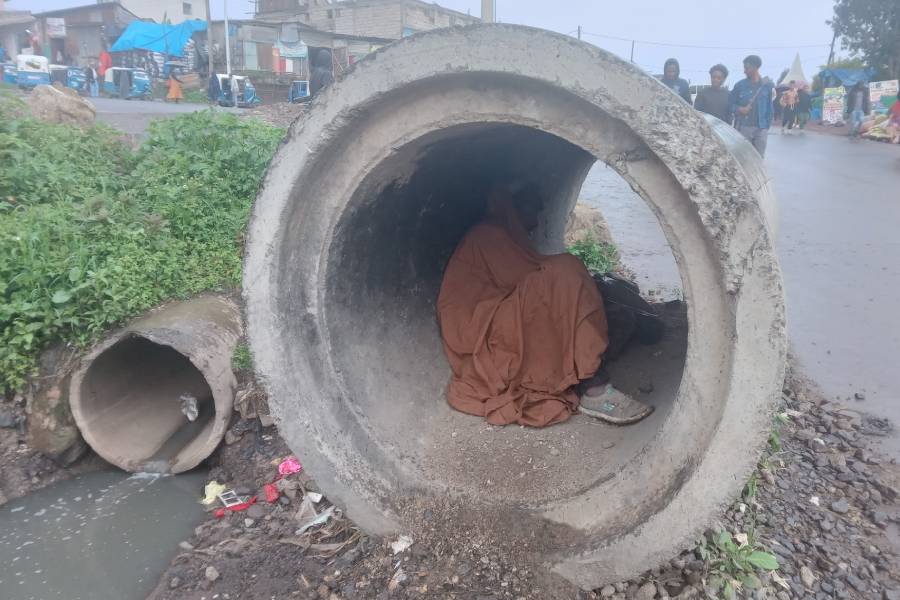

A man finds refuge from the impending rain within a weathered cement pipe. Ethiopia’s refugee population exceeded one million last year, making it the second-largest host country in Africa, as it continues to open its borders to those seeking asylum and refuge. Meanwhile, at least 4.5 million locals were displaced in the country as of December 2023, due to conflict, violence, drought, and flooding. According to the UNOCHA report, immediate action is crucial to reduce people's vulnerability to protection risks caused by these multifaceted shocks. This includes addressing displacement and preventing reliance by internally displaced persons (IDPs) on harmful coping mechanisms.
[ssba-buttons]